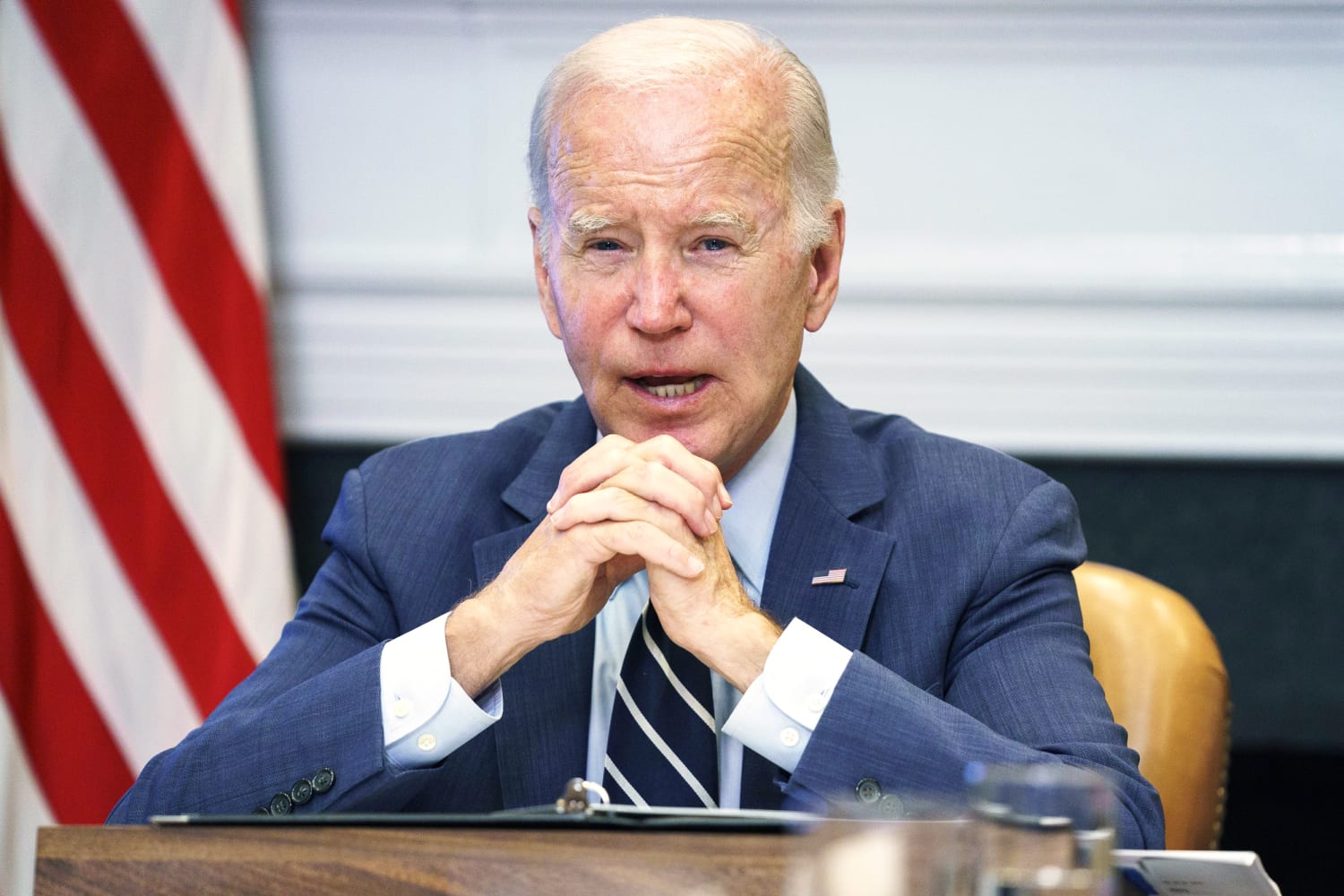[ad_1]

WASHINGTON — President Joe Biden addressed the nation from the Oval Office on Friday night after Congress voted this week to cut spending and extend the debt ceiling for two years.
The speech, Biden’s first Oval Office address, centered on how the bipartisan effort “averted economic crisis,” Biden said.
“Passing this budget agreement was critical. The stakes could not have been higher,” he added.
“No one got everything they wanted but the American people got what they needed. We averted an economic crisis and an economic collapse.”
Earlier Friday, Biden’s press secretary said the president planned to reinforce how bipartisan cooperation helped avert the potential economic calamity of a debt default.
“He wants to talk directly to the American people and talk about how we were able to come together and deliver,” Karine Jean-Pierre said. “That’s important.”
The Bipartisan Budget Agreement passed by a final vote of 63-36 in the Senate on Thursday night, sending the bill to the president’s desk. Jean-Pierre said Biden will not sign the bill on Friday and indicated it’s likely to happen on Saturday.
“Senators from both parties voted to protect the hard-earned economic progress we have made and prevent a first-ever default by the United States,” Biden said in a statement overnight.
Its companion bill in the Republican-led House, the Fiscal Responsibility Act, passed by a final vote of 314-117 on Wednesday.
“It protects the core pillars of my Investing in America agenda that is creating good jobs across the country, fueling a resurgence in manufacturing, rebuilding our infrastructure, and advancing clean energy,” as well as programs like Social Security, Medicare, and Medicaid, Biden said in the statement. “It protects my student debt relief plan for hardworking borrowers. And it honors America’s sacred obligation to our veterans by fully funding veterans’ medical care.”
He added, “I look forward to signing this bill into law as soon as possible.”
Biden brokered the deal with House Speaker Kevin McCarthy, R-Calif., after promising that he would not negotiate over the debt ceiling, a posture he maintained even as the leaders hashed out a plan to slash the federal budget. The cuts angered members of both parties, with some Republicans insisting they were not severe enough, while Democrats argued they went too far.
Looming over the talks was the rapidly approaching threat of economic catastrophe as the government warned that it would soon run out of money to pay its bills.
Fitch Ratings, a top credit rating agency, which put the U.S. on negative watch last week, said Friday that it is keeping the federal government’s credit rating at a perfect AAA, but will keep it on negative watch through the third quarter of this year, noting “steady deterioration in governance over the last 15 years.”
In response, Treasury Department spokeswoman Lily Adams noted that the debt ceiling bill passed with “a broad bipartisan majority of both chambers,” calling it a “fiscally responsible” measure that “will continue to meet all of our commitments.”
“The Treasury market remains the safest, deepest and most liquid market in the world,” Adams added.
Last month, Biden cut short an overseas visit to return to the table in Washington as the clock wound down.
Throughout the fraught talks, Biden weighed using his powers to raise the government’s borrowing limit unilaterally by invoking the 14th Amendment, a move that would have relied on an untested legal theory but that some Democrats have urged the president to seriously consider.
Brian Cheung and Monica Alba contributed.
[ad_2]
Source link
